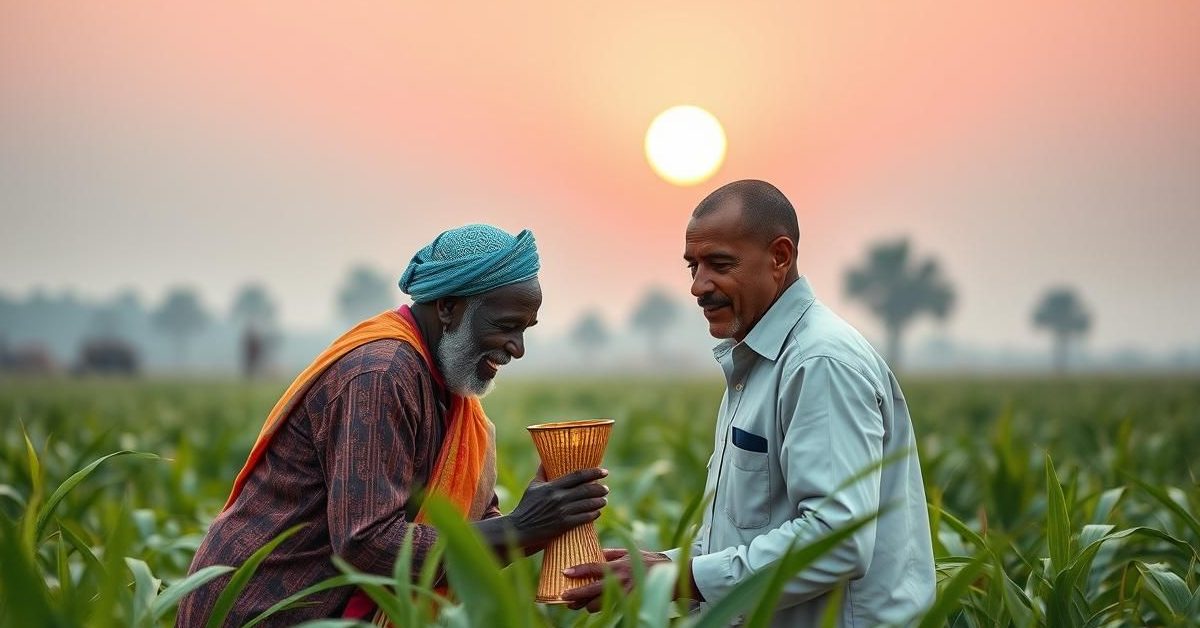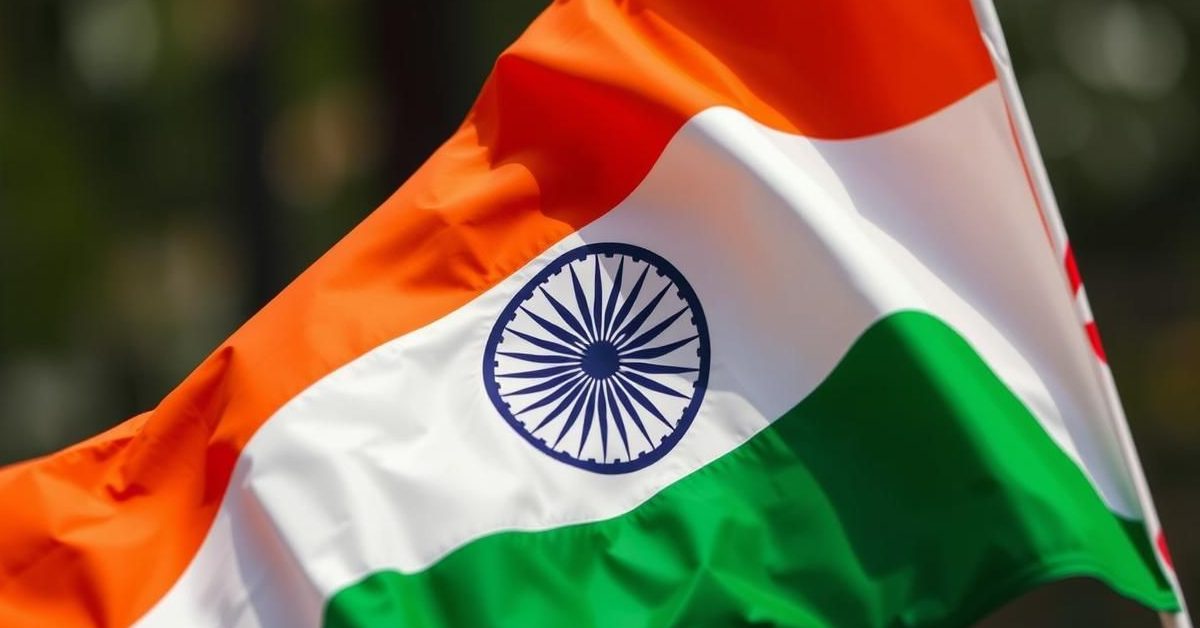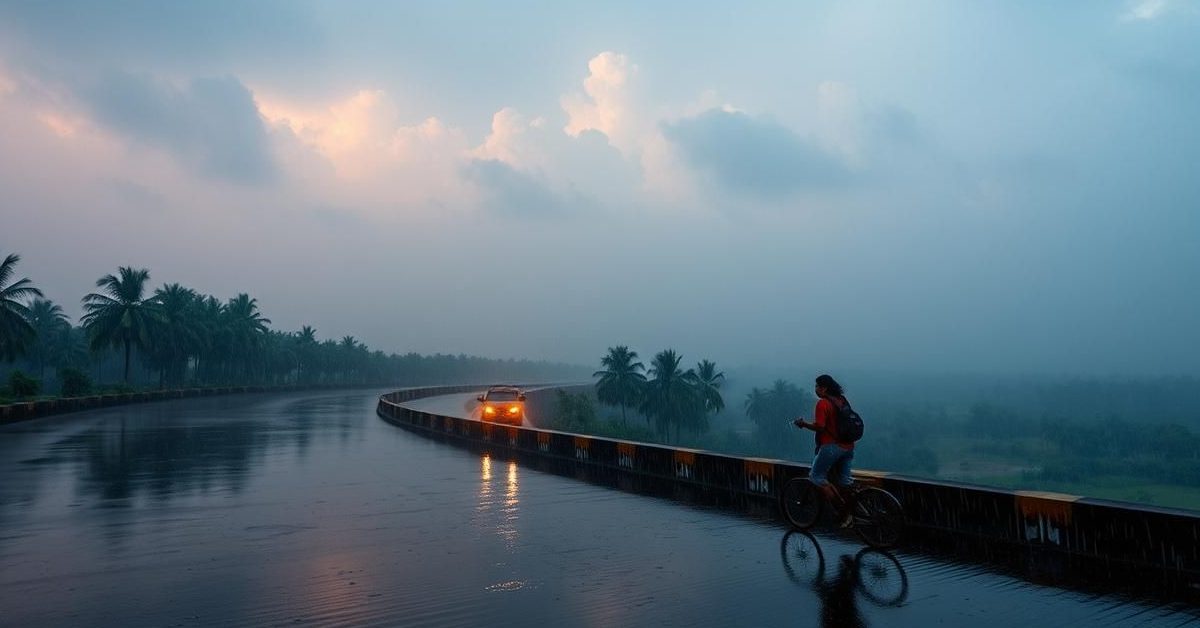In an era grappling with escalating global challenges—from pervasive food insecurity and the relentless march of climate change to the urgent imperative for agricultural transformation—the enduring partnership between India and Africa stands as a beacon of hope and necessity. This vital collaboration, deeply rooted in a long history of shared aspirations, is now more critical than ever.
For many African nations, agriculture forms the very bedrock of their economies, serving as a primary engine for industrialization and a crucial pathway out of poverty. Yet, this foundational sector remains acutely vulnerable, constantly buffeted by unpredictable climate risks, hobbled by inadequate infrastructure, and constrained by limited access to vital finance and cutting-edge technology.
Africa’s Agricultural Paradox Unveiled
Over recent decades, extreme weather events have unleashed havoc across Africa’s agricultural landscape. Devastating droughts, erratic rainfall patterns, searing heatwaves, and violent storms have become alarmingly frequent. Between 1970 and 2020, droughts and torrential rains emerged as the most formidable climatic threats, particularly as the vast majority of African agriculture relies solely on rainfall rather than irrigated systems. These unpredictable weather patterns translate directly into sharp, devastating declines in productivity.
Compounding this vulnerability, countless farmers operate without access to modern agricultural infrastructure, reliable market intelligence, essential financial services, or critical agricultural extension support. The ripple effects of climate change extend far beyond the individual farmer, impacting the entire agricultural value chain—from processors and distributors to the end consumers. Effectively addressing these multifaceted challenges demands an integrated, value chain-based approach that champions both climate adaptation and mitigation, ensuring the sector’s long-term competitiveness and sustainability.
Africa faces a perplexing paradox: while agriculture directly employs nearly 65 percent of its workforce, its contribution to the continent’s Gross Domestic Product (GDP) hovers at a mere 15 percent. Furthermore, the continent’s heavy reliance on food imports poses a significant economic vulnerability. Since the turn of the millennium, food imports in Sub-Saharan Africa have soared relative to domestic production. Until recently, Africa was importing approximately $50 billion worth of food annually. Alarming projections suggest this figure could skyrocket to an astonishing $90-$110 billion by the close of this year, exacerbated by ongoing global conflicts.
This deep dependence on food imports renders the continent particularly susceptible to external shocks. The COVID-19 pandemic, for instance, delivered a brutal blow, as did the Russia-Ukraine conflict, which severely disrupted global supply chains for essential commodities like wheat and fertilizers. This geopolitical upheaval led to a substantial surge in food prices across African markets. According to the International Monetary Fund (IMF), food prices in Sub-Saharan Africa alone surged by nearly 24 percent between 2020 and 2022.
Consequently, tackling the pervasive issue of post-harvest losses, which frequently exceed 30 percent, and vigorously promoting climate-smart agricultural practices are not merely desirable, but essential. These steps are vital to revitalizing the agricultural sector and generating sustainable employment opportunities for Africa’s burgeoning youth population.
Recognizing agriculture’s paramount importance, influential bodies such as the African Union (AU) and the African Development Bank (AfDB) have strategically prioritized agricultural development through flagship initiatives. The AU’s “High-5” agenda includes the transformative “Feed Africa” initiative, designed to pivot agriculture from subsistence farming to a robust business model by adding value to raw commodities. This ambitious program seeks to liberate 320 million people from the shackles of hunger while simultaneously unlocking Africa’s immense agribusiness potential, which is projected to exceed $100 billion by the end of this year.
Similarly, the Comprehensive Africa Agriculture Development Programme (CAADP), a cornerstone of Agenda 2063, directly targets hunger elimination and poverty reduction. It achieves this by championing sustainable land and water management, enhancing market access, boosting food availability, and accelerating the transfer of agricultural research and technology.
India’s Growing Footprint in Africa’s Agricultural Renaissance
India has emerged as an indispensable strategic partner in Africa’s agricultural transformation journey. While this partnership has evolved organically over time, recent years have witnessed a significant acceleration in cooperation, encompassing crucial areas such as agricultural development, food processing, specialized training, technology transfer, and robust private investment. This collaboration flourishes through both bilateral government-to-government channels and dynamic engagement with the private sector.
On the inter-governmental front, India has extended invaluable support through soft loans, comprehensive training programs, and critical technology assistance to numerous African nations. These concerted efforts are meticulously designed to enhance farming practices, modernize irrigation systems, improve soil quality, and boost agricultural mechanization.
For instance, India’s EXIM Bank extended a $23 million Line of Credit (LoC) to Angola, enabling the purchase of essential tractors and farm machinery, alongside plans for the establishment of a state-of-the-art Food Processing Business Incubation Centre. Zimbabwe has benefited immensely from support in setting up a Rural Technology Park, a Food Testing Laboratory, and a Vocational Training Centre. Similarly, Lesotho secured a $5 million LoC dedicated to agricultural equipment, while Malawi received $1 million to develop a Business Incubation Centre providing vital short-term training in crop processing, composting techniques, and briquette production.
The Catalytic Role of India’s Private Sector
India’s private sector has proven to be a pivotal force, dramatically strengthening India-Africa agricultural cooperation. A growing number of Indian companies have strategically invested in establishing critical food processing infrastructure across the African continent. A shining example is Surface Wilmar, a powerful joint venture between Zimbabwe’s Industrial Development Corporation and India’s Midex Global Pvt. Ltd. This collaboration saw an investment of approximately $1.5 million to construct an edible oil production facility near Harare, which has remarkably grown into the largest cooking oil manufacturer in Southern Africa.
Other influential Indian firms actively shaping Africa’s agricultural sector include ETG (Export Trading Group), recognized as one of the largest integrated agricultural conglomerates. ETG operates across a broad spectrum of countries including Tanzania, Kenya, Malawi, Mozambique, Nigeria, and South Africa. The African Development Bank recently approved a significant $1.4 million grant to bolster ETG’s Women Entrepreneurship and Employability project, a testament to its commitment to empowering 600 women-led businesses across Mozambique, Tanzania, and Zambia.
ZimGold has channelled $40 million into Zimbabwe’s edible oil and margarine production, creating employment for over 500 individuals. Varun Beverages has committed an impressive $250 million towards establishing bottling plants and puree processing facilities in Zimbabwe. Additionally, Raha Cooking Oil opened a vital processing plant in Norton, Zimbabwe. Indian firms such as the Asian Tea Company, Pure Diets, Rajarambapu Group, and HK Jalan Group are actively exploring further investments in commercial agriculture across the region.
Beyond Commerce: Humanitarian Aid and Women’s Empowerment
India’s engagement in African agriculture extends meaningfully beyond mere economic cooperation to embrace vital trilateral partnerships with international agencies such as USAID, the UK’s Department for International Development (DFID), and the Supporting India’s Trade Preferences for Africa (SITA) programme. A prime example is the tripartite agreement with the Food and Agriculture Organization (FAO), through which India dispatched agricultural experts to Lesotho, offering crucial support to enhance food security and refine irrigation planning.
Furthermore, India consistently provides humanitarian assistance and invests in crucial capacity building. During a severe drought in Zimbabwe, India dispatched critical food aid, including substantial rice donations of 50,000 tonnes in 2003 and 500 tonnes in 2015. Similarly, Malawi received robust support, including agricultural equipment valued at $1 million and 1,000 metric tonnes of rice during a crippling crop failure crisis in 2020. The Democratic Republic of the Congo also benefited significantly from India’s donation of much-needed tractors and agricultural accessories.
Non-governmental organizations (NGOs) like India’s pioneering Self-Employed Women’s Association (SEWA) have profoundly deepened India-Africa engagement through invaluable grassroots knowledge exchange. SEWA’s empowering women-to-women initiatives adeptly adapt highly successful rural Indian models to foster resilience and self-reliance among African women, significantly bolstering community-based agricultural development efforts.
Harnessing Opportunities Together: For a Food-Secure Future
Both India and Africa find themselves at a critical juncture, confronting similar profound challenges stemming from the pervasive impacts of climate change, burgeoning demographic growth, and persistent geopolitical instability. Africa’s burgeoning food market alone is anticipated to burgeon to a staggering $1 trillion by 2030, with food demand projected to double by 2050. This presents monumental opportunities for sustainable investment across a spectrum of areas: farm mechanization, advanced irrigation systems, sophisticated food processing, intelligent nutrient management, and pioneering agricultural research and development.
India’s rich experience in successfully integrating smallholder farmers into modern value chains, drastically reducing post-harvest losses, and effectively raising farm incomes offers an invaluable, transferable model for Africa. India’s distinctive “3A” framework – promoting technologies that are Affordable, Appropriate, and Adaptable – provides scalable, cost-effective solutions meticulously tailored to African realities.
Nonetheless, solidifying India-Africa agricultural ties will necessitate an intensified commitment to deeper bilateral and trilateral partnerships, expanded private sector involvement, and the establishment of robust, dynamic knowledge-sharing platforms. Such comprehensive collaboration holds the key to ensuring resilient food security, fostering genuinely inclusive growth, and building sustainable agri-food systems across the entire continent.
By synergistically combining India’s extensive agricultural expertise with Africa’s vast natural and human resources, this formidable partnership can become the foundational cornerstone for feeding the future, dramatically reducing hunger, and propelling unprecedented economic prosperity across both continents.















